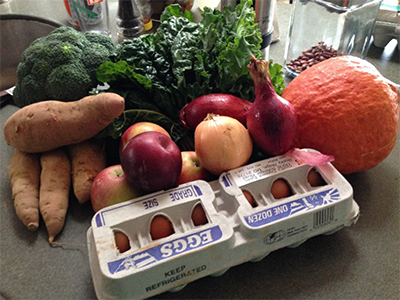United States-European Commission Urban Freight Twinning Initiative: Compendium of Project Summaries
| |||
| Pilot | United States |
The Metropolitan Washington Council of Governments (MWCOG) has established a Local and Regional Food Distribution (LRFD) Working Group to help enhance local food supply chains that connect rural and suburban farmers to urban-based marketplaces in the Washington, DC metro region. Many producers and businesses in this region (and in other regions) struggle to connect with scale-appropriate infrastructure for product aggregation and distribution. This project is currently supported by local philanthropic contributions and by a U.S. Department of Agriculture program called Leveraging Investment for Network Coordination (Food LINC). As part of the FoodLINC initiative, MWCOG hired a full-time Regional Food Systems Value Chain Coordinator to work with the LRFD Working Group and other regional stakeholders.

The LRFD Working Group is helping to enhance food chain supply logistics in the Washington, D.C. region.
Source: Lindsay Smith, MWCOG.
Pilot
Beginning March 2017
Washington, D.C. metro region
Lindsay Smith, AICP
Regional Food Systems Value Chain Coordinator
Metropolitan Washington Council of Governments
(202) 962-3307
LSmith@mwcog.org
Jon Schermann
Transportation Planner IV
Metropolitan Washington Council of Governments
(202) 962-3317
JSchermann@mwcog.org
As a strategic convener of food-system stakeholders, the LRFD Working Group is expected to strengthen local and regional farm businesses and increase access to healthy, sustainable, local food for regional consumers.
The LRFD Working Group will:
MWCOG staff interviewed a range of food system stakeholders working in different areas of the supply chain to develop a work plan and identify potential participants. Stakeholders interviewed include nonprofits, farmers, local government staff, institutions, distributors, and grocers.
|
United States Department of Transportation - Federal Highway Administration |
||